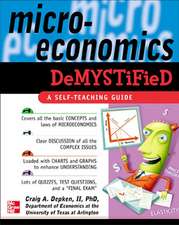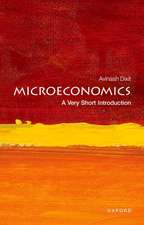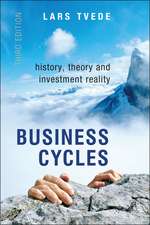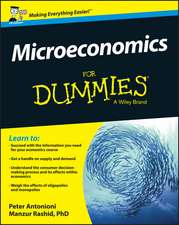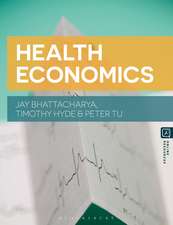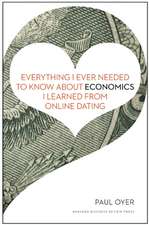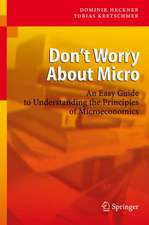Finance at the Threshold: Rethinking the Real and Financial Economies: Transformation and Innovation
Autor Christopher Houghton Budden Limba Engleză Paperback – 25 mai 2017
| Toate formatele și edițiile | Preț | Express |
|---|---|---|
| Paperback (1) | 341.55 lei 3-5 săpt. | +22.67 lei 4-10 zile |
| Taylor & Francis – 25 mai 2017 | 341.55 lei 3-5 săpt. | +22.67 lei 4-10 zile |
| Hardback (1) | 768.69 lei 6-8 săpt. | |
| Taylor & Francis – 24 feb 2011 | 768.69 lei 6-8 săpt. |
Din seria Transformation and Innovation
-
 Preț: 477.39 lei
Preț: 477.39 lei - 13%
 Preț: 338.33 lei
Preț: 338.33 lei -
 Preț: 325.93 lei
Preț: 325.93 lei - 12%
 Preț: 342.62 lei
Preț: 342.62 lei - 25%
 Preț: 770.26 lei
Preț: 770.26 lei - 25%
 Preț: 823.57 lei
Preț: 823.57 lei -
 Preț: 485.40 lei
Preț: 485.40 lei - 16%
 Preț: 236.73 lei
Preț: 236.73 lei - 18%
 Preț: 1109.18 lei
Preț: 1109.18 lei - 22%
 Preț: 236.38 lei
Preț: 236.38 lei - 25%
 Preț: 840.71 lei
Preț: 840.71 lei - 17%
 Preț: 257.49 lei
Preț: 257.49 lei - 30%
 Preț: 773.26 lei
Preț: 773.26 lei - 16%
 Preț: 220.46 lei
Preț: 220.46 lei - 17%
 Preț: 258.09 lei
Preț: 258.09 lei -
 Preț: 469.34 lei
Preț: 469.34 lei - 17%
 Preț: 259.98 lei
Preț: 259.98 lei - 15%
 Preț: 454.50 lei
Preț: 454.50 lei - 25%
 Preț: 855.59 lei
Preț: 855.59 lei - 15%
 Preț: 444.10 lei
Preț: 444.10 lei - 16%
 Preț: 275.88 lei
Preț: 275.88 lei -
 Preț: 385.62 lei
Preț: 385.62 lei - 18%
 Preț: 275.07 lei
Preț: 275.07 lei - 17%
 Preț: 140.10 lei
Preț: 140.10 lei - 15%
 Preț: 456.96 lei
Preț: 456.96 lei -
 Preț: 380.91 lei
Preț: 380.91 lei
Preț: 341.55 lei
Nou
Puncte Express: 512
Preț estimativ în valută:
65.35€ • 68.42$ • 54.08£
65.35€ • 68.42$ • 54.08£
Carte disponibilă
Livrare economică 17-31 martie
Livrare express 28 februarie-06 martie pentru 32.66 lei
Preluare comenzi: 021 569.72.76
Specificații
ISBN-13: 9781138094628
ISBN-10: 1138094625
Pagini: 258
Dimensiuni: 174 x 246 x 19 mm
Greutate: 0.45 kg
Ediția:1
Editura: Taylor & Francis
Colecția Routledge
Seria Transformation and Innovation
Locul publicării:Oxford, United Kingdom
ISBN-10: 1138094625
Pagini: 258
Dimensiuni: 174 x 246 x 19 mm
Greutate: 0.45 kg
Ediția:1
Editura: Taylor & Francis
Colecția Routledge
Seria Transformation and Innovation
Locul publicării:Oxford, United Kingdom
Notă biografică
Based in Canterbury, England, Dr Christopher Houghton Budd is an economic and monetary historian with a doctorate in banking and finance from Cass (formerly City) Business School in London. He works freelance in various parts of the world as a lecturer and consultant. For over 30 years he has made a special study of Rudolf Steiner's contribution to economics. Under the auspices of the Centre for Associative Economics, of which he is a director, he has published many papers and several books, including The Metamorphosis of Capitalism, Rare Albion - A Monetary Allegory, and Auditorial Central Banking.
Recenzii
'Christopher Houghton Budd's approach is unconventional and always interesting. He tackles big and difficult questions in a challenging way which should not be dismissed lightly. It is all clearly written and lucidly explained and students of economics will not see much like this and will benefit from the challenge.' - Forrest Capie, Professor Emeritus, CASS Business School, City University, London 'This well written and thought-provoking book will prompt its readers to reconsider their ideas on money, on credit, on banking, and on the role of government....’ From the foreword by Geoffrey Wood, Professor of Economics, Cass Business School, London '...a book that is intended to challenge our thinking about economics, by deepening our understanding of the role of finance and banking in a functional global economy...it is a publication that will infuriate some economists, accountants and bankers because it will scratch an itch they have about the value of what they do - which they dare not acknowledge. The same discomfort will apply to academics, especially in Finance Departments and Business Schools that have not challenged their leading assumptions for decades...Finally, politicians...Chapters 7 to 12 should provide a fresh perspective for examining the symptoms in order to treat the malaise. Open-minded think tanks, in particular, will be grateful for new models to test against the evidence of the failure of banking.' - John Carlisle, Visiting Professor, Sheffield Business School. Chairman, Alliance of Deming Consultants and Cooperation Works Ltd, Sheffield
Cuprins
Part I ; Chapter 1 Why Nobody Saw It Coming; Chapter 2 When the Banks Stopped Lending to One Another; Chapter 3 2007 – A Threshold in Financial Evolution; Chapter 4 It’s the Epistemology, Stupid; Part II; Chapter 5 Rudolf Steiner’s Conception of Society; Chapter 6 Rudolf Steiner’s Monetary Analysis; Part III; Chapter 7 The Twentieth Century; Chapter 8 Keynes vs. Friedman – A False Debate; Chapter 9 The Flattened Economy; Part IV ; Chapter 10 Beyond Banking; Chapter 11 Deep Accounting; Chapter 12 Banking on Youth and Trade; Chapter 13 From Threshold to Bridge;
Descriere
Why did the banks stop lending to one another, and why at this moment in history? Is the problem merely a matter of over-loose credit due to the relaxation of traditional prudence, or did global finance find itself at its limits, both technically and epistemologically? In Finance at the Threshold, Christopher Houghton Budd views the contemporary crisis from his perspective as an economic and monetary historian. In his contribution to the Transformation and Innovation Series, the author argues that global finance has brought us to the limits of what mechanistic economic explanations can capture. New ideas and above all new instruments are needed.

